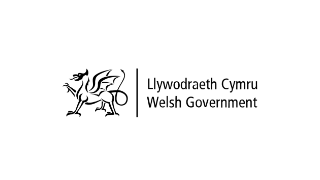Government Transformation Playbook
Welcome to the 4th edition of the Government Transformation Playbook, which collects together the key takeaways from past attendees to the Government Transformation Summit - and adds some thoughts of our own on what civil servants are sharing with us.
Every six months Digital, Data and Technology leaders gather from across the Civil Service, alongside their peers from overseas, to take stock, reflect and discuss how to advance the government agenda.
Though the discussions on the day are private, our editorial team summarises the key themes, and we feature the voices of participants where they are happy to share what they are working on - and what they are working towards.
Overview: It's all about efficiency
Right now the focus in government is all about achieving efficiency savings - and the easiest way to be efficient is to do things right at the first attempt.
Most digital change decisions in government are made by generalist leaders who lack the expertise to fully comprehend and tackle digital challenges. The Civil Service recognises that it needs to build digital capability and support for non-specialist leaders to understand the issues posed by legacy data and systems. This is where the Central Digital & Data Office plays a critical enabling role across Whitehall.
As Megan Lee, Chief Executive of CDDO details below, the publication of 'Transforming for a digital future: 2022 to 2025 roadmap for digital and data' in June 2022 puts in place practical steps to deliver more efficient digital government, supported by £8 billion of ring-fenced investment in digital, data and technology up to 2025.
Government transformation risks and mitigations
According to the National Audit Office's (NAO) latest report on the progress of Government Transformation, legacy data and systems represent significant risks for this roadmap, including:
- Reduced efficiency and effectiveness of public service delivery
- Increased operational costs and maintenance efforts
- Limited innovation and interoperability opportunities
- Security vulnerabilities and data quality issues
- Retarding user satisfaction and trust
CDDO has learned from the experience of previous government technology reform initiatives, and has worked closely with departmental leaders to agree a realistic and measurable agenda for government transformation, supported by HM Treasury.
As a relatively small central specialist function, CDDO cannot deliver on behalf of departments and so the success of the June 2022 roadmap depends on the engagement of senior departmental officials who have the required authority.
The Digital, Data and Technology Functional Leadership Group (DDaT FLG), which comprises directors general or equivalent with accountability for the digital function in departments and key arm’s-length bodies, steered the direction of the Roadmap, and it was signed off at permanent secretary and ministerial level. Each of the Roadmap’s six missions has a senior departmental sponsor at permanent secretary level, to encourage involvement from across the organisation.
Current actions being undertaken across government include:
- Developing a clear understanding of the scale, nature and impact of legacy data and systems across government
- Prioritising legacy remediation based on risk assessment and business case analysis
- Modernising or replacing legacy data and systems that aligns with user needs and digital standards
- Securing sufficient funding and resources for legacy remediation projects
- Sharing good practice and lessons learned across government
Transformation Thought Leaders
-
 Delivering citizen services fit for the future.
Delivering citizen services fit for the future. -

Key takeaways from the conference Chair.
-
 A CFO's perspective on government transformation.
A CFO's perspective on government transformation. -
 Where data interoperability will take government next.
Where data interoperability will take government next. -
 Tackling the skills gap in government.
Tackling the skills gap in government. -
 Tapping the talent pool to drive innovation.
Tapping the talent pool to drive innovation. -
 Delivering big education outcomes.
Delivering big education outcomes. -
 Upskilling civil servants.
Upskilling civil servants. -
 Inclusive public services.
Inclusive public services. -
 It's not easy being green.
It's not easy being green. -
 Reducing the friction in service delivery.
Reducing the friction in service delivery. -
 Using AI to boost collective knowledge.
Using AI to boost collective knowledge. -

Service Automation and the citizen journey.
-
 Accessing the right skills.
Accessing the right skills. -
 Making Government workplaces digital.
Making Government workplaces digital. -
 Transformation Strategy.
Transformation Strategy. -
 Connected Government.
Connected Government.
Government Transformation Exemplars
10 Government Transformation Priorities
Challenged to deliver improved outcomes for citizens against a backdrop of limited budgets and resources, Civil Service leaders must find new ways to create value, share best practice and collaborate.
Based on our quarterly audience survey, and the conversations that took place among our 150 invited government experts at the last Government Transformation Summit, these are the ten priorities shaping those conversations and setting the course for public sector transformation more widely:
1. CDDO and ONS drive implementation of standards
The adoption of common data standards across government will bring in a new era of digital transformation in government. The Cabinet Office’s Central Digital and Data Office (CDDO) and the Office for National Statistics (ONS) are making good strides on this having pushed for the wider adoption of data principles and the implementation of standards across central government departments.
This will serve to help tackle some of the long-standing issues around consent models, data sharing and interoperability between departments and the IT systems that they use. Against a backdrop of rising accountability for personal information, greater transparency around data will play a crucial role in convincing the public that the way government use data is in their best interest.
2. Local governments will adopt data standards
For data standards to be truly transformative, they need to work across the whole of the public sector, including local government - central government cannot do it alone.
Over the next year, we should expect to start seeing more local authorities adopt data principles and implement standards. Within the context of adult social care, data has a particularly significant role to play. Enabling people to understand their care options and make decisions on how they are being supported in the future depends on the joining up of relevant information from different organisations around the person. This relies heavily on standard data models and systems that communicate with each other.
3. Data becomes key driver for economic recovery and growth
The UK will emerge as a clear leader when it comes to harnessing data to drive economic recovery and growth. This can be seen with the construction and focus on data in projects such as the North Sea Transition Authority (NSTA), with regards to the data sharing they are doing with oil and gas companies, which is helping to transform the UK offshore energy industry.
The Department for Environment, Food & Rural Affairs (DEFRA) is making globally game-changing moves in the agricultural sector with regards to data; using blockchain technology to track animal movements and working with farmers to optimise their crops using data and drones.
At the forefront of the UK’s data drive is the UK’s Financial Sector Conduct Authority; having developed, defined and adopted common data standards that identify data in a consistent way throughout the financial sector.
4. UK single sign on for public services will finally be resolved
HMRC’s Government Gateway and the Cabinet Office’s One-Login have been fighting it out in a battle to become the single sign-in for all government services. It is becoming increasingly likely - two years on from the launch of One Login - that a best of both worlds situation is emerging where we will see the two systems merge to become one.
That being said, the NHS App is swiftly proving itself to be a potential third contender. The latest records show that it is being used by more than 29 million users, making it the most downloaded app in the UK. The NHS App has essentially achieved what it took Government Gateway two decades to do; and while this is driven in large part by the urgency of the national crisis, it was still delivered in a fraction of the time.
5. Machine learning starts delivering on promises
Prevailing technologies in Machine Learning (ML) and the redesigning of how services are delivered in government will trigger an increase in automation that will significantly alter the way government makes decisions and interacts with the public. For example, by delivering streamlined self-service systems with user authentication schemes. With this, we will finally start to see government catching up with the private sector.
6. Place shaping will drive new wave of technology
Geographic Information Systems (GIS) and place shaping will drive a new wave of technology supporting participative spatial design to tackle the difficult questions around where to build, how transport needs to change and how to achieve 10 minute towns and 20 minute cities.
GIS will have a significant role in overcoming challenges such as flood prevention and carving out the path ahead for autonomous, self-driving vehicles. In the context of the global climate crisis, this technology enables councils, governments and developers to make better decisions around where to build houses and how to design places in line with net-zero targets.
7. IoT data interoperability: the next big transformation
The IoT still doesn’t operate well with other platforms like demographic data, economic data and the OLS data we have from the Census. However, if we start overlaying the information generated in place, with established information about the place, we can start to get a three dimensional time series of what’s going on.
This year we should expect to see a progression in IoT standards and interoperability. This could have a multitude of benefits; particularly in areas like crime prevention, where having the combined knowledge of IoT based information and the pre-existing establishment data for a crime hotspot can take us several steps closer to pre-crime.
Similarly, this kind of information can be used to identify where there’s likely going to be a need to redesign transport infrastructure before it's overloaded, rather than what we typically do in this country, which is to redesign transport ten years after it has broken.
8. NHS leads the charge to unlock analytics
The NHS will lead the charge when it comes to unlocking analytics to shape service delivery. However, they must sustain trust through strong ethical frameworks.
The NHS was able to collect a wealth of new data during the height of the Covid-19 crisis - now they want to use that data to generate commercial revenues.
How successfully the NHS navigates concerns over the use of patient personal data to achieve its outcomes could pave the way for unlocking data analytics across other areas of the public sector.
It will also set out how we move from an acute-driven NHS that is consuming resources, to an NHS that is changing life habits to reduce demand.
9. 2021 Census to drive public service design and delivery
The Census 2021 was the most successful campaign in the UK census history to date, with 97% of households across England and Wales submitting responses - surpassing the 94% pre-census target.
It was also the first time that the ONS delivered a digital census, with over 22 million people submitting their answers online.
Data is now being formatted in a way that people can understand more easily and it is released far more quickly, leading to faster and better quality evidence-based policy formulation.
As the commitment to user-centric design continues to grow in public services, the onus on government organisations to listen to the voice of the citizen and deliver the best possible outcomes for them has become more important.
As such, 2023 will see the ONS continue to develop more frequent and inclusive social statistics, while ensuring that the right methodology on administrative data is used when gathering information directly from citizens.
10. Commerce meets transparency
The next iteration of the UK General Data Protection Regulation (GDPR) - designed to allow commerce to work more flexibly - will reconcile tensions around the use of citizen data by government.
This taps into the long-standing debate over whether or not government agencies need permission or not to access citizen data, which is in turn driven by whether or not that data becomes personally identifiable. The Data Protection and Digital Information Bill, which sets out the current proposal to reform UK data protection law, is expected to go out for consultation in 2023 and with this, we can expect to see an answer to this question emerge.
Be a Part of the Discussion
Government Transformation Magazine organises the Government Transformation Summit twice a year - so to discuss these issues with senior executives from across Whitehall, with expert perspectives from overseas officials and industry authorities - consider joining us.
Government Transformation Partners
This 4th edition of the Government Transformation Playbook has been supported by these companies that share our commitment to the public good:























